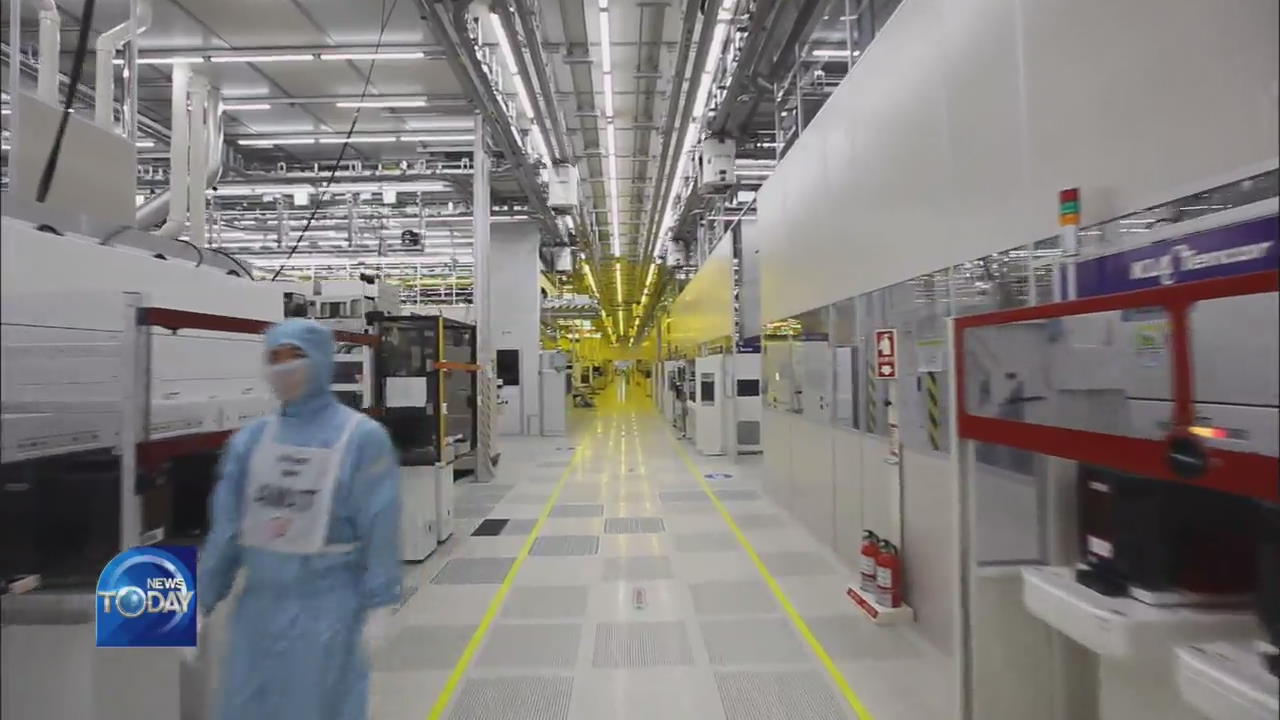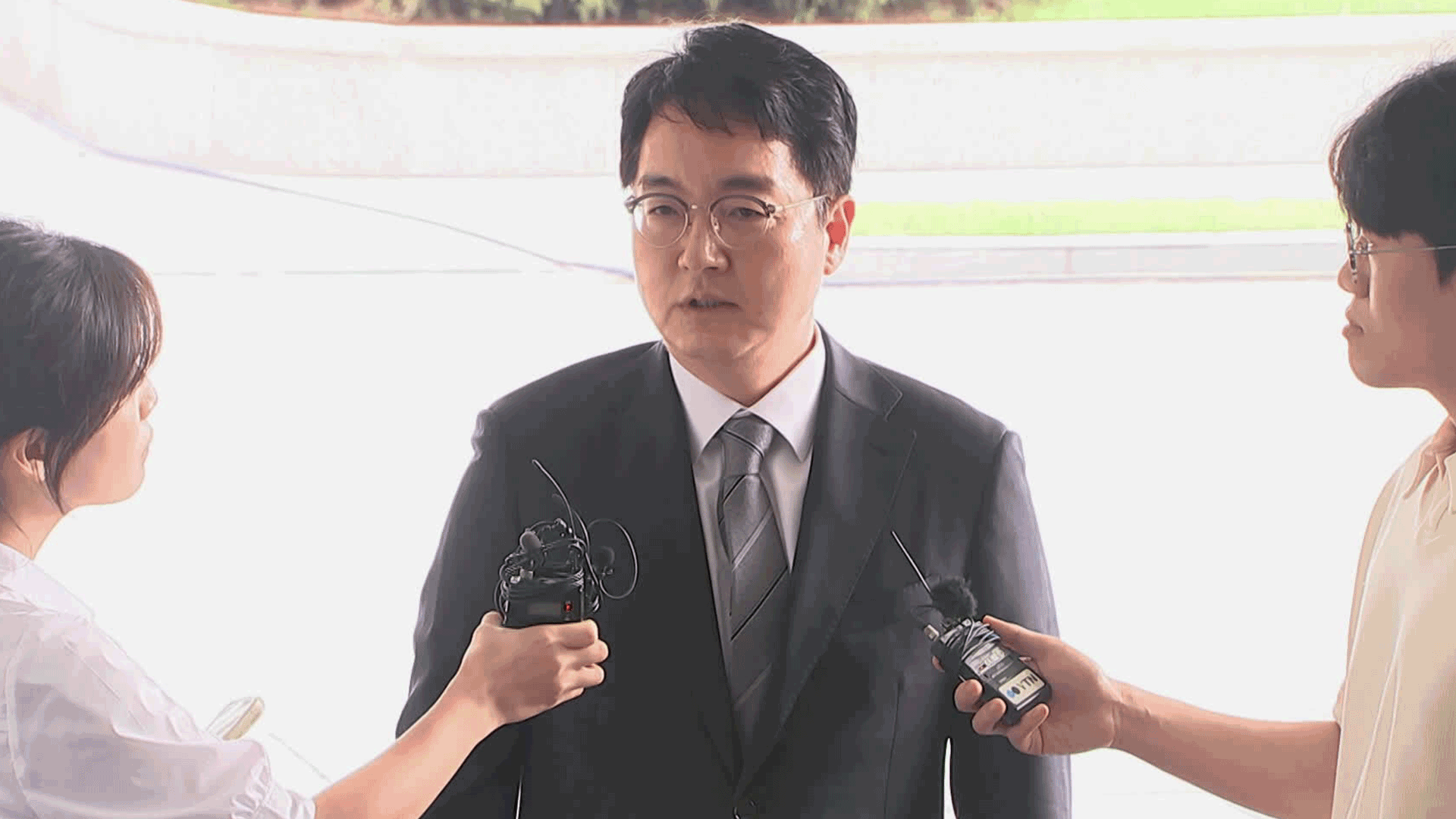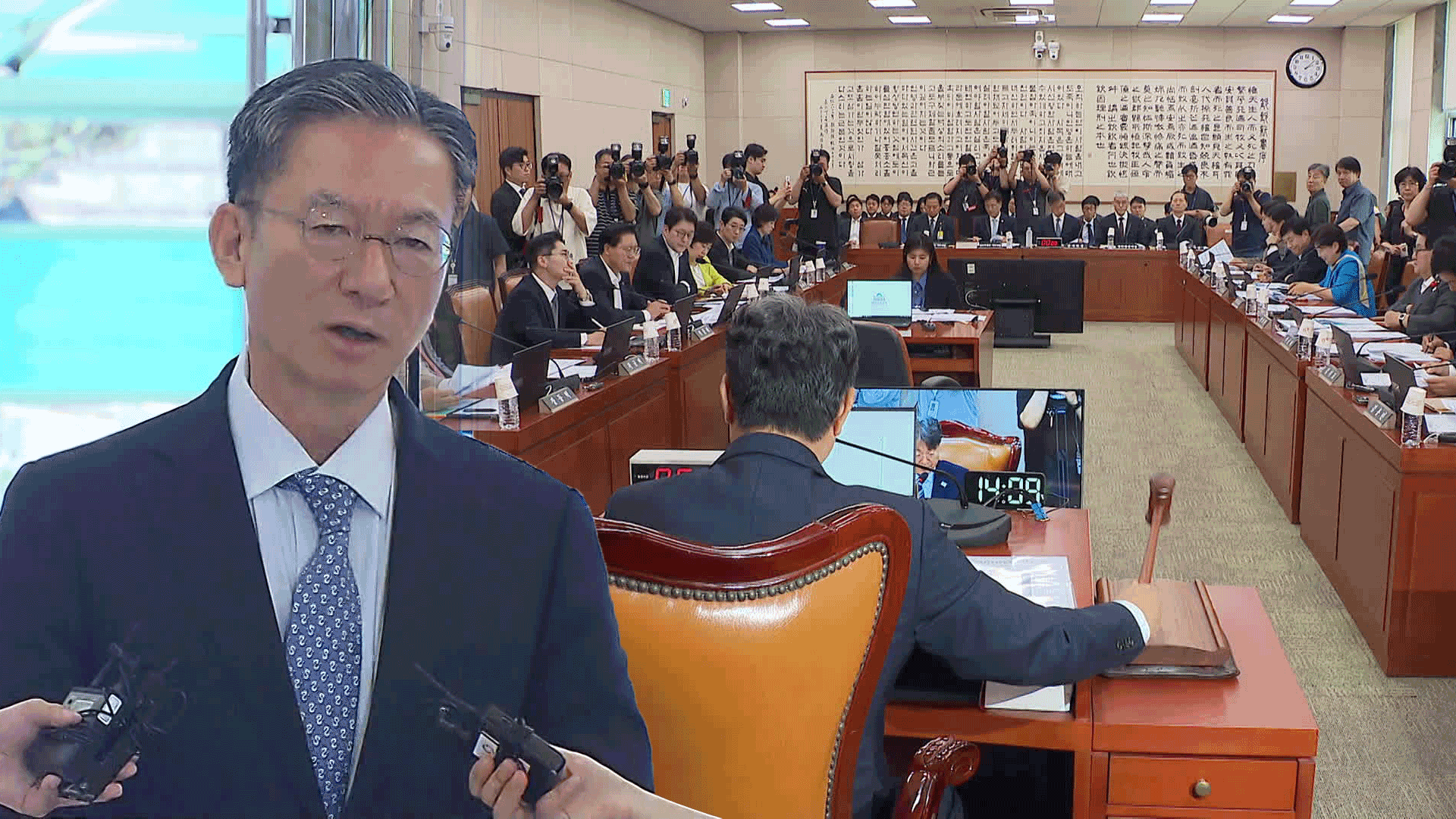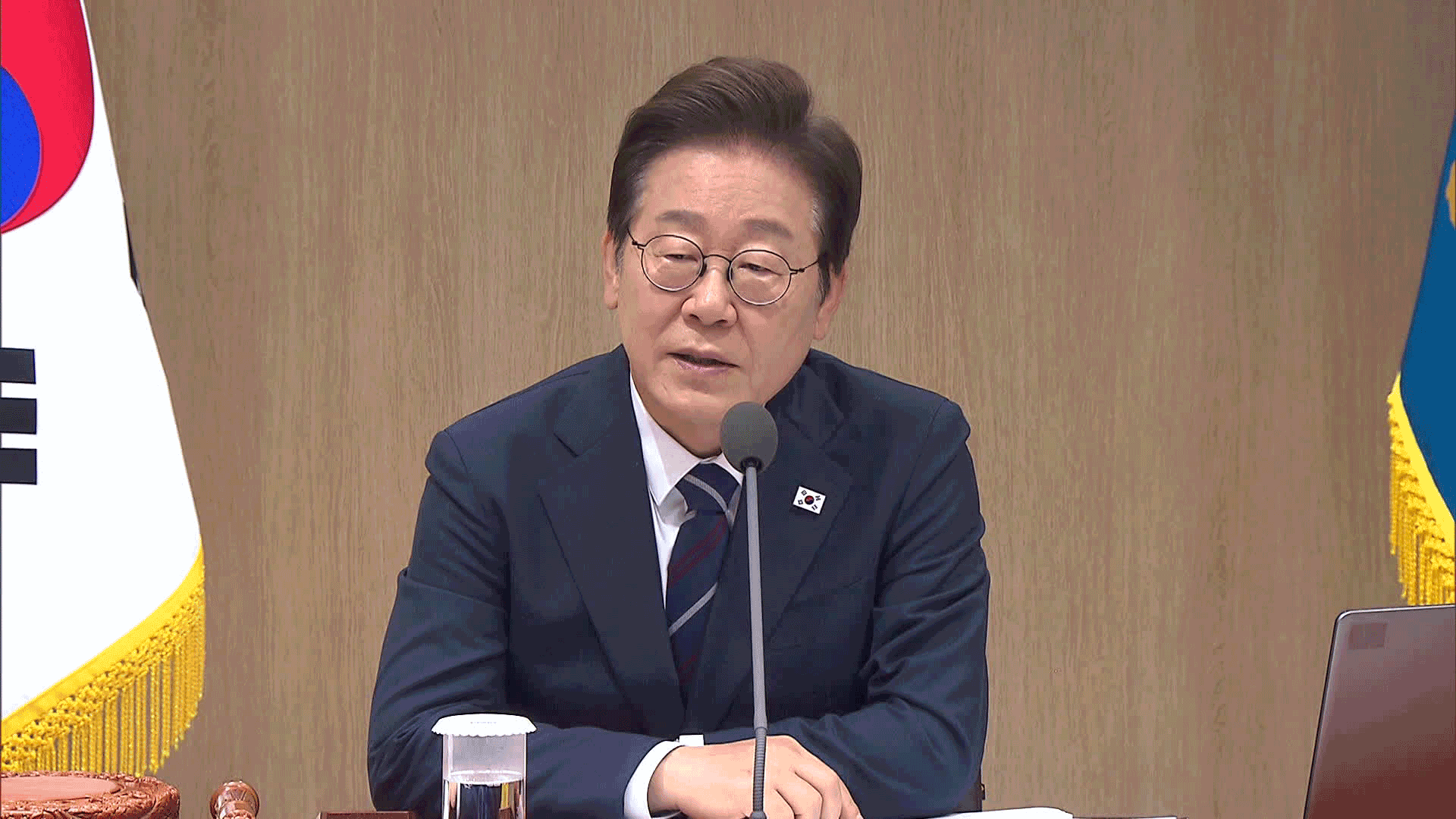STATUS OF KOR-JPN TRADE RESTRICTIONS
입력 2019.10.01 (15:24)
수정 2019.10.01 (16:45)
읽어주기 기능은 크롬기반의
브라우저에서만 사용하실 수 있습니다.
[Anchor Lead]
Three months have passed since Japan announced trade restrictions on the shipment of three key high-tech materials to Korea. During the period, Tokyo has allowed only small amounts of the restricted industrial materials to be exported to South Korea. Now it has been confirmed that Japan has allowed a South Korea-bound shipment of fluorinated polyimide, a material needed for producing display panels, for the first time since it imposed the export controls. Despite widespread concerns about the Japanese move's possible negative impacts, South Korean firms have not yet suffered a direct blow and the nation's production of DRAM chips has rather increased. Here are the details.
[Pkg]
Fluorinated polyimide. One of the key materials used in making flexible display panels. It's confirmed Japan has allowed a shipment of the material to a smaller South Korean company for the first time since announcing trade restrictions three months ago. Tokyo also approved an additional shipment of extreme ultraviolet photoresist to Samsung Electronics. Japan has granted only a total of five export permits on shipments of high-tech materials to South Korea over the past three months: three for photoresist; one for hydrogen fluoride, another for polyimide. Other permit requests are still pending. South Korea used to import 3,000 tons of hydrogen fluoride from Japan monthly. But in August, none of the material was brought in from that country. There has been no problem in production though. According to industrial analysis, Samsung's DRAM production increased 25 percent on quarter in Q3 of this year when the export measures were imposed. This is thanks to the increasing domestic production of these materials and the development of alternative suppliers, such as Taiwan and Belgium.
[Soundbite] CHO YOUNG-MOO(LG ECONOMIC RESEARCH INSTITUTE) : "It appears that there has been no immediate production problem, as the materials are domestically produced, alternative supply routes are secured and inventories are used."
The government announced Japan's removal of South Korea from its preferential trade list has caused no significant damage on domestic industries.
[Soundbite] HONG NAM-KI(FINANCE MINISTER(PARLIAMENTARY GOVERNMENT INTERPELLATION SESSION)) : "To our knowledge, domestic businesses have suffered no substantial damage and there's been no production problems caused by the Japanese trade curbs."
However, concerns and uncertainties remain. A third of domestic manufacturers claims to be experiencing difficulty purchasing Japanese materials and parts, compared to a year ago.
[Soundbite] YOO MYUNG-HEE(TRADE MINISTER(SEP. 26)) : "The nation is faced with uncertainties regarding the supply of key materials in addition to increased time and costs needed."
The government filed a complaint with the WTO against the Japanese export curbs. While arranging bilateral discussions, Seoul issued another message urging Tokyo to resolve the trade row through dialogue on Tuesday.
Three months have passed since Japan announced trade restrictions on the shipment of three key high-tech materials to Korea. During the period, Tokyo has allowed only small amounts of the restricted industrial materials to be exported to South Korea. Now it has been confirmed that Japan has allowed a South Korea-bound shipment of fluorinated polyimide, a material needed for producing display panels, for the first time since it imposed the export controls. Despite widespread concerns about the Japanese move's possible negative impacts, South Korean firms have not yet suffered a direct blow and the nation's production of DRAM chips has rather increased. Here are the details.
[Pkg]
Fluorinated polyimide. One of the key materials used in making flexible display panels. It's confirmed Japan has allowed a shipment of the material to a smaller South Korean company for the first time since announcing trade restrictions three months ago. Tokyo also approved an additional shipment of extreme ultraviolet photoresist to Samsung Electronics. Japan has granted only a total of five export permits on shipments of high-tech materials to South Korea over the past three months: three for photoresist; one for hydrogen fluoride, another for polyimide. Other permit requests are still pending. South Korea used to import 3,000 tons of hydrogen fluoride from Japan monthly. But in August, none of the material was brought in from that country. There has been no problem in production though. According to industrial analysis, Samsung's DRAM production increased 25 percent on quarter in Q3 of this year when the export measures were imposed. This is thanks to the increasing domestic production of these materials and the development of alternative suppliers, such as Taiwan and Belgium.
[Soundbite] CHO YOUNG-MOO(LG ECONOMIC RESEARCH INSTITUTE) : "It appears that there has been no immediate production problem, as the materials are domestically produced, alternative supply routes are secured and inventories are used."
The government announced Japan's removal of South Korea from its preferential trade list has caused no significant damage on domestic industries.
[Soundbite] HONG NAM-KI(FINANCE MINISTER(PARLIAMENTARY GOVERNMENT INTERPELLATION SESSION)) : "To our knowledge, domestic businesses have suffered no substantial damage and there's been no production problems caused by the Japanese trade curbs."
However, concerns and uncertainties remain. A third of domestic manufacturers claims to be experiencing difficulty purchasing Japanese materials and parts, compared to a year ago.
[Soundbite] YOO MYUNG-HEE(TRADE MINISTER(SEP. 26)) : "The nation is faced with uncertainties regarding the supply of key materials in addition to increased time and costs needed."
The government filed a complaint with the WTO against the Japanese export curbs. While arranging bilateral discussions, Seoul issued another message urging Tokyo to resolve the trade row through dialogue on Tuesday.
■ 제보하기
▷ 카카오톡 : 'KBS제보' 검색, 채널 추가
▷ 전화 : 02-781-1234, 4444
▷ 이메일 : kbs1234@kbs.co.kr
▷ 유튜브, 네이버, 카카오에서도 KBS뉴스를 구독해주세요!
- STATUS OF KOR-JPN TRADE RESTRICTIONS
-
- 입력 2019-10-01 15:36:05
- 수정2019-10-01 16:45:34

[Anchor Lead]
Three months have passed since Japan announced trade restrictions on the shipment of three key high-tech materials to Korea. During the period, Tokyo has allowed only small amounts of the restricted industrial materials to be exported to South Korea. Now it has been confirmed that Japan has allowed a South Korea-bound shipment of fluorinated polyimide, a material needed for producing display panels, for the first time since it imposed the export controls. Despite widespread concerns about the Japanese move's possible negative impacts, South Korean firms have not yet suffered a direct blow and the nation's production of DRAM chips has rather increased. Here are the details.
[Pkg]
Fluorinated polyimide. One of the key materials used in making flexible display panels. It's confirmed Japan has allowed a shipment of the material to a smaller South Korean company for the first time since announcing trade restrictions three months ago. Tokyo also approved an additional shipment of extreme ultraviolet photoresist to Samsung Electronics. Japan has granted only a total of five export permits on shipments of high-tech materials to South Korea over the past three months: three for photoresist; one for hydrogen fluoride, another for polyimide. Other permit requests are still pending. South Korea used to import 3,000 tons of hydrogen fluoride from Japan monthly. But in August, none of the material was brought in from that country. There has been no problem in production though. According to industrial analysis, Samsung's DRAM production increased 25 percent on quarter in Q3 of this year when the export measures were imposed. This is thanks to the increasing domestic production of these materials and the development of alternative suppliers, such as Taiwan and Belgium.
[Soundbite] CHO YOUNG-MOO(LG ECONOMIC RESEARCH INSTITUTE) : "It appears that there has been no immediate production problem, as the materials are domestically produced, alternative supply routes are secured and inventories are used."
The government announced Japan's removal of South Korea from its preferential trade list has caused no significant damage on domestic industries.
[Soundbite] HONG NAM-KI(FINANCE MINISTER(PARLIAMENTARY GOVERNMENT INTERPELLATION SESSION)) : "To our knowledge, domestic businesses have suffered no substantial damage and there's been no production problems caused by the Japanese trade curbs."
However, concerns and uncertainties remain. A third of domestic manufacturers claims to be experiencing difficulty purchasing Japanese materials and parts, compared to a year ago.
[Soundbite] YOO MYUNG-HEE(TRADE MINISTER(SEP. 26)) : "The nation is faced with uncertainties regarding the supply of key materials in addition to increased time and costs needed."
The government filed a complaint with the WTO against the Japanese export curbs. While arranging bilateral discussions, Seoul issued another message urging Tokyo to resolve the trade row through dialogue on Tuesday.
Three months have passed since Japan announced trade restrictions on the shipment of three key high-tech materials to Korea. During the period, Tokyo has allowed only small amounts of the restricted industrial materials to be exported to South Korea. Now it has been confirmed that Japan has allowed a South Korea-bound shipment of fluorinated polyimide, a material needed for producing display panels, for the first time since it imposed the export controls. Despite widespread concerns about the Japanese move's possible negative impacts, South Korean firms have not yet suffered a direct blow and the nation's production of DRAM chips has rather increased. Here are the details.
[Pkg]
Fluorinated polyimide. One of the key materials used in making flexible display panels. It's confirmed Japan has allowed a shipment of the material to a smaller South Korean company for the first time since announcing trade restrictions three months ago. Tokyo also approved an additional shipment of extreme ultraviolet photoresist to Samsung Electronics. Japan has granted only a total of five export permits on shipments of high-tech materials to South Korea over the past three months: three for photoresist; one for hydrogen fluoride, another for polyimide. Other permit requests are still pending. South Korea used to import 3,000 tons of hydrogen fluoride from Japan monthly. But in August, none of the material was brought in from that country. There has been no problem in production though. According to industrial analysis, Samsung's DRAM production increased 25 percent on quarter in Q3 of this year when the export measures were imposed. This is thanks to the increasing domestic production of these materials and the development of alternative suppliers, such as Taiwan and Belgium.
[Soundbite] CHO YOUNG-MOO(LG ECONOMIC RESEARCH INSTITUTE) : "It appears that there has been no immediate production problem, as the materials are domestically produced, alternative supply routes are secured and inventories are used."
The government announced Japan's removal of South Korea from its preferential trade list has caused no significant damage on domestic industries.
[Soundbite] HONG NAM-KI(FINANCE MINISTER(PARLIAMENTARY GOVERNMENT INTERPELLATION SESSION)) : "To our knowledge, domestic businesses have suffered no substantial damage and there's been no production problems caused by the Japanese trade curbs."
However, concerns and uncertainties remain. A third of domestic manufacturers claims to be experiencing difficulty purchasing Japanese materials and parts, compared to a year ago.
[Soundbite] YOO MYUNG-HEE(TRADE MINISTER(SEP. 26)) : "The nation is faced with uncertainties regarding the supply of key materials in addition to increased time and costs needed."
The government filed a complaint with the WTO against the Japanese export curbs. While arranging bilateral discussions, Seoul issued another message urging Tokyo to resolve the trade row through dialogue on Tuesday.
이 기사가 좋으셨다면
-
좋아요
0
-
응원해요
0
-
후속 원해요
0










![[HEADLINE]](https://news.kbs.co.kr/data/news/2019/10/01/4294072_10.jpg)



![[단독] 골프연습장 아니라더니<br>…‘한남동 골프연습장’ 도면 입수](/data/news/2025/07/01/20250701_Uh8Jnu.png)


이 기사에 대한 의견을 남겨주세요.